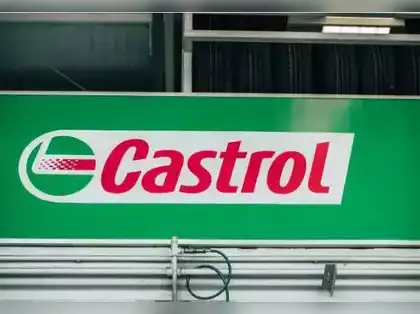
The oil and gas industry, a cornerstone of global energy markets, is once again witnessing a significant development as BP’s Castrol business garners interest from prominent players. Reports reveal that Indian conglomerate Reliance Industries, along with investment heavyweights Apollo Global Management and Lone Star Funds, is exploring a potential acquisition of BP’s lubricants business. This move could herald a transformative shift in the industry, redefining the competitive landscape and paving the way for innovative strategies in the lubricant sector.
The Allure of Castrol: A Proven Legacy
Castrol, a subsidiary of British multinational BP, has long been a distinguished name in the lubricants sector. With a history spanning over a century, Castrol has cultivated a reputation for quality, innovation, and customer trust. The brand’s wide range of automotive, industrial, and marine lubricants has positioned it as a market leader, commanding a loyal customer base across the globe.
One of Castrol’s key strengths lies in its robust research and development capabilities. The company has consistently pushed the boundaries of lubricant technology, introducing products that enhance engine performance, reduce emissions, and extend equipment life. These innovations have not only solidified Castrol’s market position but also set industry benchmarks for quality and reliability.
The prospect of acquiring such an established business is understandably appealing. For Reliance, Apollo, and Lone Star, this potential acquisition represents a strategic opportunity to leverage Castrol’s market position, expand their portfolios, and reinforce their foothold in the lucrative oil and gas industry.
Reliance Industries: A Strategic Fit
Reliance Industries, under the visionary leadership of Mukesh Ambani, has consistently demonstrated a knack for identifying high-growth opportunities. As India’s largest private-sector company, Reliance has successfully diversified its operations across sectors including petrochemicals, telecommunications, and retail. The company’s interest in Castrol aligns with its broader strategy to consolidate its energy business and strengthen its global presence.
By acquiring Castrol, Reliance could gain access to a well-established brand, a robust distribution network, and advanced lubricant technologies. Such an acquisition would complement Reliance’s existing energy portfolio and bolster its position in international markets. Additionally, it would enable the company to cater to the growing demand for high-performance lubricants in emerging economies.
Reliance’s strong infrastructure and financial resources position it as a formidable contender in this acquisition race. The company’s extensive experience in the oil and gas sector, coupled with its commitment to sustainability, could drive Castrol’s transformation into a future-ready enterprise. This move would also align with Reliance’s broader vision of becoming a global leader in the energy and materials domain.
Apollo Global Management: A Calculated Move
Apollo Global Management, a leading private equity firm with a reputation for making bold investments, is another contender in the race to acquire Castrol. Known for its ability to identify undervalued assets and drive operational improvements, Apollo’s interest in Castrol underscores the firm’s confidence in the long-term growth potential of the lubricants market.
For Apollo, the acquisition would not only diversify its portfolio but also provide a stable revenue stream. The lubricants market, despite facing challenges such as volatility in crude oil prices and increasing competition, continues to exhibit steady growth. With its financial acumen and expertise in driving value creation, Apollo is well-positioned to unlock the full potential of Castrol’s business.
Moreover, Apollo’s global presence and investment expertise could play a crucial role in expanding Castrol’s reach to untapped markets. The firm’s ability to implement operational efficiencies and streamline processes could further enhance Castrol’s profitability and competitiveness. This strategic acquisition would be in line with Apollo’s philosophy of creating long-term value for its stakeholders.
Lone Star Funds: A Global Perspective
Lone Star Funds, a global private equity firm known for its investments in real estate, equity, and credit, has also expressed interest in BP’s Castrol business. With a focus on creating value through strategic acquisitions, Lone Star’s potential entry into the lubricants market signals its intent to diversify and capitalize on emerging opportunities.
The acquisition of Castrol would allow Lone Star to tap into a resilient and high-margin business. By leveraging Castrol’s strong brand equity and extensive distribution network, Lone Star could drive growth and enhance profitability. Moreover, the firm’s global presence and financial resources would provide the necessary support to navigate the complexities of the lubricants market.
Lone Star’s interest in Castrol is particularly intriguing given its history of transforming businesses. The firm’s expertise in identifying growth opportunities and implementing value-driven strategies could enable Castrol to achieve new heights of success. This acquisition could also serve as a springboard for Lone Star to establish a stronger presence in the energy sector.
The Road Ahead: Challenges and Opportunities
While the prospect of acquiring Castrol is undeniably attractive, the road ahead is fraught with challenges. Regulatory approvals, valuation concerns, and integration complexities are some of the hurdles that potential buyers must navigate. Furthermore, the increasing emphasis on sustainability and the transition towards cleaner energy sources add another layer of complexity to the decision-making process.
Regulatory compliance is a critical aspect that cannot be overlooked. The acquisition of a global business like Castrol would require approvals from multiple jurisdictions, each with its own set of rules and regulations. Ensuring compliance with these requirements is essential to avoid delays and potential roadblocks.
Additionally, the valuation of Castrol’s business is likely to be a key determinant in the negotiation process. With multiple contenders vying for the asset, the competition could drive up the acquisition cost. The potential buyers will need to strike a balance between securing the deal and ensuring that the acquisition delivers long-term value.
Integration challenges are another significant consideration. Merging operations, aligning corporate cultures, and retaining key talent are crucial for the success of any acquisition. The acquiring entity will need to develop a comprehensive integration plan to ensure a seamless transition and maximize synergies.
Embracing Sustainability: A Strategic Imperative
The increasing focus on sustainability and environmental responsibility is reshaping the oil and gas industry. As the world transitions towards cleaner energy sources, the lubricants market is also undergoing a transformation. This presents both challenges and opportunities for the potential buyers of Castrol.
Investing in sustainable practices and developing eco-friendly products could position Castrol as a leader in the green revolution. By leveraging its research and development capabilities, the company could introduce innovative lubricants that meet the evolving needs of customers while minimizing environmental impact. Such initiatives would not only enhance Castrol’s brand image but also drive long-term growth.
Furthermore, embracing digital transformation and leveraging data analytics could unlock new opportunities for Castrol. From optimizing supply chain operations to enhancing customer experiences, digital tools could play a pivotal role in driving efficiency and innovation. The acquiring entity will need to prioritize these initiatives to stay ahead in an increasingly competitive market.
A Transformative Shift in the Lubricants Market
The potential acquisition of BP’s Castrol business marks a pivotal moment for the oil and gas industry. As Reliance, Apollo, and Lone Star vie for this prized asset, the outcome of this deal could reshape the competitive dynamics of the lubricants market. For the acquiring entity, this is more than just a financial transaction; it is an opportunity to redefine the future of a storied brand and unlock its untapped potential.
In conclusion, the interest shown by Reliance, Apollo, and Lone Star in BP’s Castrol business underscores the enduring appeal of established brands and the strategic value they offer. As the industry watches this high-stakes negotiation unfold, one thing is certain: the eventual acquisition will leave an indelible mark on the global lubricants market, setting the stage for a new era of growth and innovation.
This development serves as a testament to the dynamic nature of the oil and gas industry. The eventual outcome will not only impact the stakeholders involved but also influence the broader energy landscape. As the world moves towards a more sustainable future, the decisions made today will shape the trajectory of the industry for years to come. Whether it is Reliance’s strategic vision, Apollo’s investment expertise, or Lone Star’s transformative approach, each contender brings a unique perspective to the table. The race for Castrol is more than just a business deal; it is a reflection of the evolving priorities and aspirations of the global energy sector.

